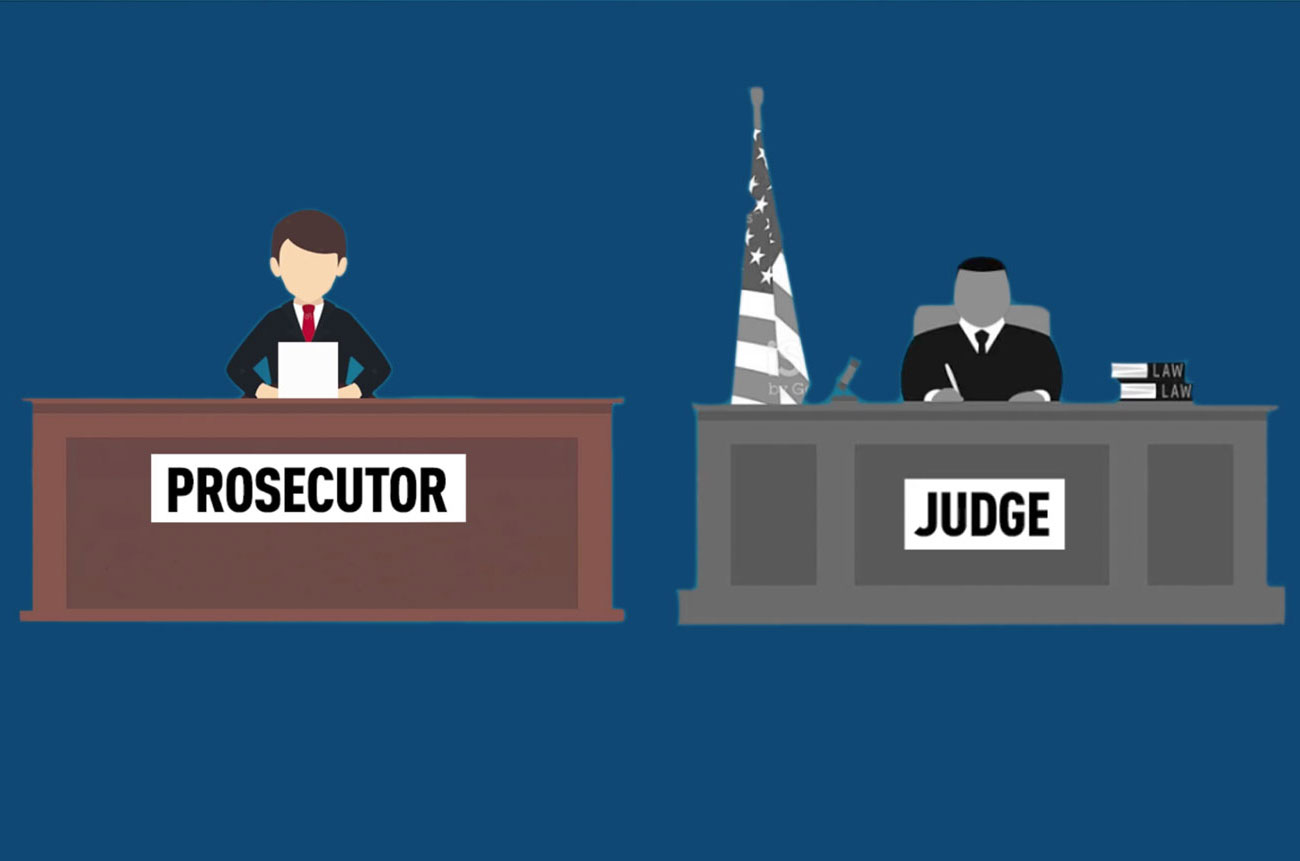What is a Prosecutor in Court?
Definition of a Prosecutor
A prosecutor is an attorney who represents the state or federal government in court proceedings against people accused of committing crimes. Prosecutors work for district attorneys’ offices at the city, county, state, and federal levels. Their primary duty is to file criminal charges and prove in court that the accused is guilty beyond a reasonable doubt. Prosecutors are sometimes referred to as district attorneys or state’s attorneys.
Role of a Prosecutor
Prosecutors have many important responsibilities throughout the criminal justice process:
Bringing Charges Against Defendants
After reviewing investigations by police and federal agencies, prosecutors decide whether there is enough evidence to file formal criminal charges against individuals suspected of crimes. They draft complaints, informations, and indictments detailing the charges.
Presenting Evidence in Court
During criminal trials and hearings, prosecutors present exhibits, documents, forensic reports, and witness testimony to establish facts and prove the defendant’s guilt.
Examining and Cross-Examining Witnesses
Prosecutors thoroughly prepare their witnesses before trials and hearings. They conduct direct examinations asking witnesses to explain what happened. During cross-examinations, they challenge and discredit witnesses presented by the defense.
Making Opening and Closing Arguments
In opening statements, prosecutors provide the judge and jury with an overview of the charges and evidence against the defendant. Closing arguments summarize the most compelling evidence and ask the jury to return a guilty verdict.
Differences Between Prosecutors and Defense Attorneys
While defense attorneys and prosecutors are both licensed attorneys who represent clients in court, there are some important distinctions between the two:
Prosecutors Represent the State
Prosecutors work on behalf of the government to protect public interests and maintain law and order. They do not represent individual victims.
Prosecutors Seek Convictions
It is the prosecutor’s job to prove defendants guilty and secure criminal convictions, not to exonerate them. They have a duty to see justice served.
Prosecutors Have Investigative Resources
Prosecutors work closely with law enforcement agencies during investigations. They have access to police records, forensics, and a network of government resources.
Education and Training of Prosecutors
To become prosecutors, aspiring attorneys complete many years of education and training:
Educational Background
All prosecutors must earn a bachelor’s degree and a Juris Doctor (J.D.) degree from an accredited law school. Majors in criminal justice, political science, and pre-law provide good foundations.
Internships and Entry-Level Jobs
During law school, many future prosecutors gain experience through summer internships with district attorneys’ offices and the U.S. Department of Justice. After graduation, they may work as assistant district attorneys or judicial clerks.
Continuing Legal Education
As licensed attorneys, prosecutors are required to complete continuing legal education (CLE) courses each year to stay current on criminal law and trial practices.
Different Types of Prosecutors
There are prosecutors working at all levels of government:
State Prosecutors
State prosecutors work for district attorneys at the county, regional, or state level handling crimes that violate state laws. They appear in state trial and appellate courts.
Federal Prosecutors
Federal prosecutors are employed by the U.S. Department of Justice and U.S. Attorney’s Offices to prosecute crimes against the federal government. They practice in federal district courts.
City and County Prosecutors
In some large cities and counties, elected city or county attorneys also employ prosecutors who file charges for violations of local ordinances.
Qualities and Skills of Effective Prosecutors
The most successful prosecutors possess these traits and abilities:
Research and Analytical Skills
Prosecutors must thoroughly investigate cases and anticipate weaknesses in the evidence. They need strong research skills to identify the most applicable laws.
Oral Advocacy and Writing Skills
Prosecutors must persuade judges and juries throughclear opening and closing arguments, direct examinations, and written motions. Strong communication skills are essential.
Interpersonal Skills
Building rapport and credibility with judges, juries, witnesses, law enforcement, and victims helps prosecutors successfully try cases. Cultural sensitivity is important.
Sense of Ethics and Justice
Prosecutors have immense power that must not be abused. They must have good judgment, high ethical standards, and a commitment to fair justice.
Conclusion
Prosecutors play a pivotal role in the criminal justice system. As attorneys who represent the government, they decide which charges to bring against defendants and work to hold the accused responsible through the court process. Their duties include investigating crimes, presenting evidence in court, examining witnesses, and making arguments to prove guilt beyond a reasonable doubt. Prosecutors must balance punishing criminal behavior with upholding justice, fairness, and public trust. The most effective prosecutors are excellent communicators and legal analysts who demonstrate ethics, sound judgment, and a passion for justice.
FAQs
What are the main jobs of a prosecutor?
The main jobs of a prosecutor are to review evidence, file criminal charges, present evidence in court, question witnesses, and make arguments to secure convictions against defendants accused of crimes.
How does a prosecutor differ from a defense attorney?
Prosecutors represent the government and seek to prove defendants guilty. Defense attorneys represent the accused and advocate for their acquittal or the lowest charges/penalties possible.
What education do you need to become a prosecutor?
Becoming a prosecutor requires earning a four-year bachelor’s degree followed by a three-year Juris Doctor law degree from an accredited law school, plus passing the bar exam.
Do prosecutors get paid well?
Prosecutor salaries vary by location and experience but tend to be lucrative. According to the Bureau of Labor Statistics, the average pay for prosecutors in 2020 was over $130,000 per year.
What are good skills for prosecutors to have?
Strong research, analytical thinking, writing, oral advocacy, and ethics are essential skills for effective prosecutors. Interpersonal skills like building rapport and relating to diverse people also help prosecutors succeed.








